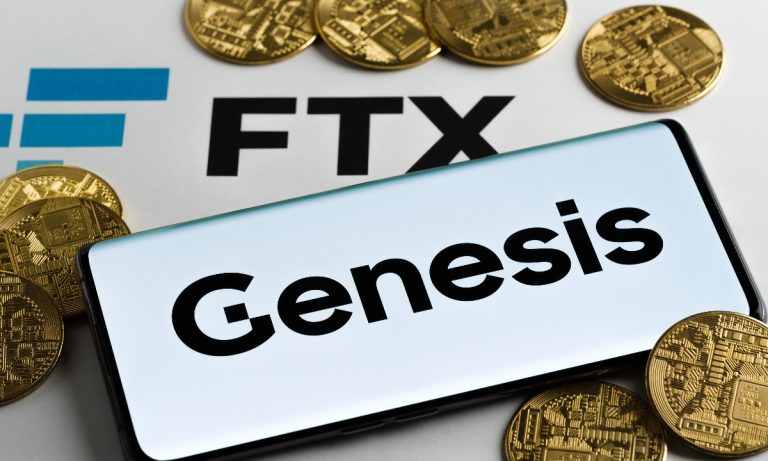
Gemini, one of the leading cryptocurrency exchanges, has accused Genesis, another prominent crypto platform, of manipulating the voting process in the FTX settlement. The settlement, which was announced last week, involved FTX, a derivatives exchange, paying $150 million to resolve a lawsuit filed by Gemini and other plaintiffs over alleged market manipulation and fraud.
Gemini claimed that Genesis, which was also a plaintiff in the lawsuit, had secretly agreed to vote in favor of the settlement in exchange for a preferential deal with FTX. Gemini alleged that Genesis had received undisclosed benefits from FTX, such as discounted fees, exclusive access to new products, and preferential liquidity. Gemini also accused Genesis of violating the fiduciary duty to the other plaintiffs and breaching the joint prosecution agreement.
Gemini said that it was not satisfied with the settlement terms, which it considered to be too lenient and insufficient to deter future misconduct by FTX. Gemini argued that FTX should have paid more damages, admitted liability, and agreed to more stringent oversight and compliance measures. Gemini also said that it was concerned about the potential impact of the settlement on the integrity and fairness of the crypto market.
Register for Tekedia Mini-MBA edition 18 (Sep 15 – Dec 6, 2025) today for early bird discounts. Do annual for access to Blucera.com.
Tekedia AI in Business Masterclass opens registrations.
Join Tekedia Capital Syndicate and co-invest in great global startups.
Register for Tekedia AI Lab: From Technical Design to Deployment.
Gemini has filed a motion to intervene in the court proceedings and seek a higher settlement amount or a trial. Gemini has also asked the court to investigate Genesis’s conduct and impose sanctions if appropriate. Gemini said that it was acting in the best interest of its customers and the crypto community at large.
Gemini claims that Genesis not only engaged in fraudulent and deceptive practices, but also violated the fiduciary duty that it owed to Gemini and the other plaintiffs as co-counsel in the litigation. Gemini also alleges that Genesis breached the joint prosecution agreement that was signed by all the plaintiffs, by secretly settling with Genesis and accepting a favorable deal that left the other plaintiffs in the dark.
Gemini argues that these actions constitute a conflict of interest and a betrayal of trust, and that they have caused irreparable harm to Gemini and the other plaintiffs. Gemini seeks to hold Genesis and its CEO liable for damages, and to nullify the settlement agreement that they reached with Genesis.
Genesis has not yet responded to Gemini’s allegations. FTX has declined to comment on the matter, saying that it was bound by a confidentiality agreement. The court has not yet ruled on Gemini’s motion or scheduled a hearing date.
The impact of Bankman-Fried’s detention on the crypto market is still unclear, but some analysts expect that it could cause volatility and uncertainty in the short term. FTX is one of the largest and most liquid crypto exchanges, with a daily trading volume of over $10 billion. It also offers a wide range of products and services, such as futures, options, leveraged tokens, prediction markets, NFTs, and more.
However, some experts also believe that the crypto industry is resilient enough to withstand this challenge, and that FTX has a strong team and infrastructure that can continue to operate smoothly even without Bankman-Fried’s presence. They also point out that FTX has a global presence and is regulated in multiple jurisdictions, which could help it avoid further legal troubles.
However, Robinhood, the popular online brokerage platform, saw its stock price surge after announcing that it had bought back its stake from SBF. The deal, which was reportedly worth $1 billion, ended a controversial relationship between the two companies that began in January 2021.
Back then, Robinhood faced a liquidity crisis as it struggled to meet the clearinghouse deposit requirements amid the unprecedented trading frenzy of GameStop and other meme stocks. To raise capital quickly, Robinhood sold some of its order flow to SBF, who then routed the orders to FTX. This arrangement drew criticism from regulators and lawmakers, who questioned the transparency and fairness of Robinhood’s business model.
In a blog post, Robinhood’s co-founder and CEO Vlad Tenev said that the buyback was a “strategic decision” that would allow the company to “focus on our long-term vision and serve our customers better”. He also thanked SBF for his support and partnership during a “challenging time”.



